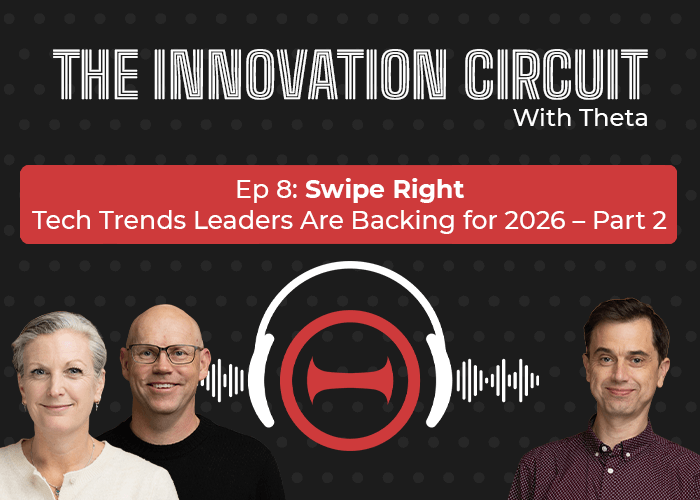
%20(1).png)
November 29, 2016
“I like solving problems.” Meet Saipriya Krishna, our new BI Manager and Location Manager in Wellington
%20(1).png)
Saipriya Krishna (known to most as Sai) has recently taken on the dual roles of BI Manager and Location Manager in Wellington. Moments into the new roles, the Kaikoura earthquake struck. This has kept her busy - making sure her team were safe and had a safe place to work. Now the dust is settling, it seemed like a good opportunity to get to know Sai a bit better…
Tell me a bit about your work at Theta, and what your new role involves.
I’ve been with Theta for a little under a year. I was looking for a new challenge after working with another consulting firm for a few years, and was brought on to work on a project for the Ministry of Health, charting patient journeys. It involves bringing together data from different DHBs across New Zealand, and using that data to build “patient journeys” – where and how does a patient first interact with health services, what is their experience, and do experiences vary across different measures – like location, age, ethnicity, gender?
The Ministry wanted to get a better understanding of the outcome of referrals for hospital services, how hospitals respond to demand, where patients may experience delays in services, and what blockages there may be (where and for whom) in a patient's treatment pathway. This information can be used to improve the services provided to the public. The work I have been doing in charting patient journeys is now helping to inform some of these questions. It’s fascinating stuff, and hopefully will have a positive impact on healthcare in NZ.
In my new role I will continue to do some project work like this, but my focus is on developing the Theta team here in Wellington, and in developing Theta’s presence in the Wellington market – so Theta is in the mix when companies are thinking about BI projects. We have a very strong technical team, so where I think I can help is in developing the soft skills, the all-round consulting skills.
And with the recent earthquake, of course things like health and safety are top of mind, and I’m keen to do more in this area.
Can you tell me a bit more about your background?
I have a master’s degree in information technology, and as a graduate joined a company specializing in business intelligence and data warehousing, in India. It was a great place to start my career – I got exposure to a global client base, and to work with large high-profile companies like EasyJet and Unilever. I worked there for seven years before making the move to New Zealand. So already I’ve had quite a long journey in IT – and I’m really enjoying it.
What do you like most about working in technology?
I like solving problems, and I especially like solving problems with data. There’s something really great about being able to show customers insights and proof, not just hypothesis. We can say to them “your data tells this story.” It’s very powerful.
So, what brought you to NZ?
A couple of things. I love to hike, but where I was in India you have to take an overnight bus or train to get out of the pollution and into nature. In Wellington it’s just a 10-minute walk to the water or the hills.
I was also seeking a bit more work-life balance, and that’s absolutely much easier to achieve in New Zealand. In India the focus is almost all on work.
Speaking of that, I hear you’ve been involved in some interesting tech projects outside of work since moving to Wellington?
Yes, I’ve done GovHack for the past two years. That goes back to the idea of solving problems. The event brings together a group of people interested in solving real social problems, to scope and build a prototype solution using open data. This year, our team built Job Lock, to connect people with skills to job and housing opportunities outside of main centres. Last year, we built a mobile application that combines data from different sources - social media, weather feeds and publicly available data like locations of community centres, water resources and traffic info. The prototype app allows users to input their needs as well as any supplies they are willing to share with their community, in an emergency. It would have been quite handy in the recent earthquakes!
Interview by Kate Doherty




.jpg)





